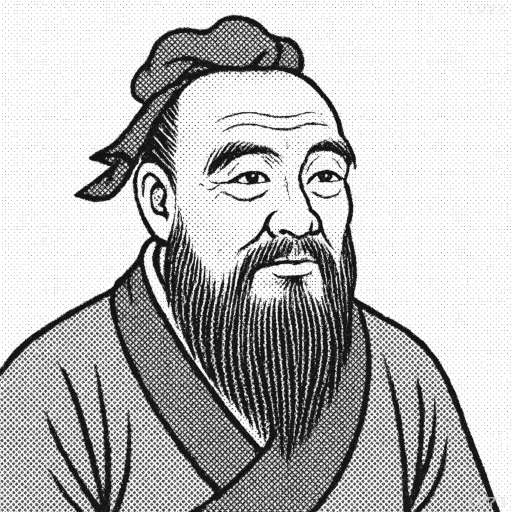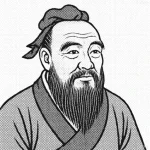“He who learns but does not think, is lost! He who thinks but does not learn is in great danger.”

- 551 BC – 479 BC
- Han ethnicity
- Philosopher, educator, politician
table of contents
Quote
“He who learns but does not think, is lost! He who thinks but does not learn is in great danger.”
Explanation
In this saying, Confucius highlights the interdependence of learning and critical thinking. He warns that acquiring knowledge without reflecting on it leaves a person “lost,” unable to understand or apply what they’ve learned. On the other hand, relying solely on one’s thoughts without continued learning creates a “great danger,” as it leads to limited perspectives and potentially flawed reasoning. For Confucius, wisdom requires a balance of continuous learning and thoughtful reflection.
This teaching is especially relevant today, where information is abundant but critical thinking is essential. Those who memorize facts without analyzing or questioning them may struggle to apply their knowledge effectively, while those who rely only on personal opinions without seeking new knowledge risk becoming closed-minded. For example, in a workplace setting, an employee who learns new skills without understanding their purpose may lack direction, while one who relies only on their own assumptions without updating their knowledge may fall behind or make poor decisions.
Confucius’s insight reminds us that true wisdom involves both acquiring knowledge and actively engaging with it. By balancing learning with critical thinking, we develop a deeper understanding and adaptability, equipping ourselves to navigate life’s complexities. This approach leads to a well-rounded, resilient mind capable of making informed and thoughtful decisions.
Would you like to share your impressions or related stories about this quote in the comments section?



